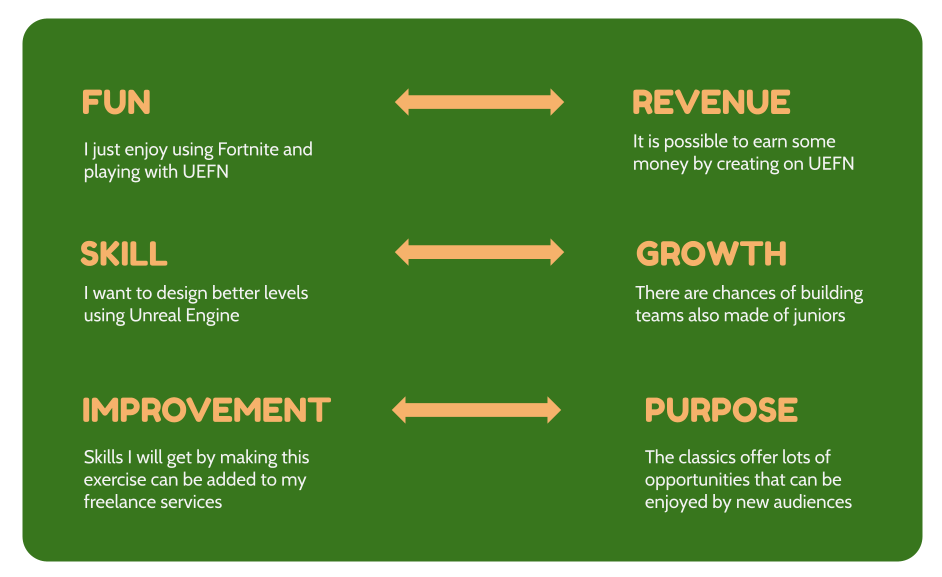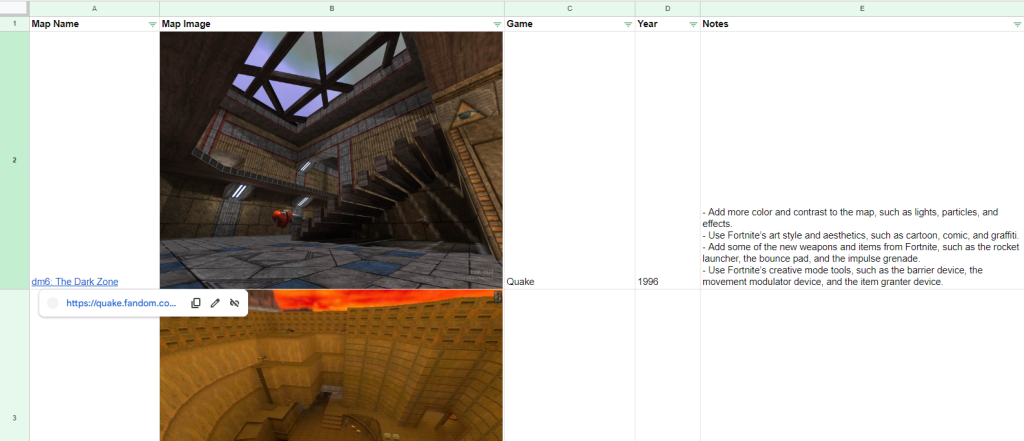I live in Barcelona, not in Montreal. The video games sector here is growing because of foreign companies landing. There are still very few profitable local companies. Plus, the Spanish government has a lot of work to do to give the push that the sector deserves to become an industry.
But I work as a game designer, that’s my profession. So I was years ago in a limbo. On one side, there were no positions for me (apart from big companies, which are not what I look for). On the other, I wanted to make games.
I decided to be the best game designer I could be. I follow three basic steps:
Be realistic: I would very love to help make the next Ocarina of Time. But that is not the case of my reality here. My reality is big corporates whose processes are made to filter out people like me. And small companies willing to find their formulas for profitability. Those companies are 80% mobile and casino. So I started specializing more in those.
A mix of analysis and creativity: from one side I have the skills to analyze what’s in the market. Because when you work as a game designer for a company they want you to find formulas to apply. Especially in mobile free-to-play. So I had to accept it and become a PRO in analysis. But I am a designer in the first place, so I worked on my creativity side. I had to improve my skills in actually designing documents and spreadsheets. Also, I had to dominate the engines, as a designer.
Share every learning: I know that it can look silly. Someone says I want to become an influencer. But that’s not the case. Sharing is caring, as they say. When you share also a small learning you learn to communicate and you leave space. Your commenters will give you insight and also in your private job you will become better.

